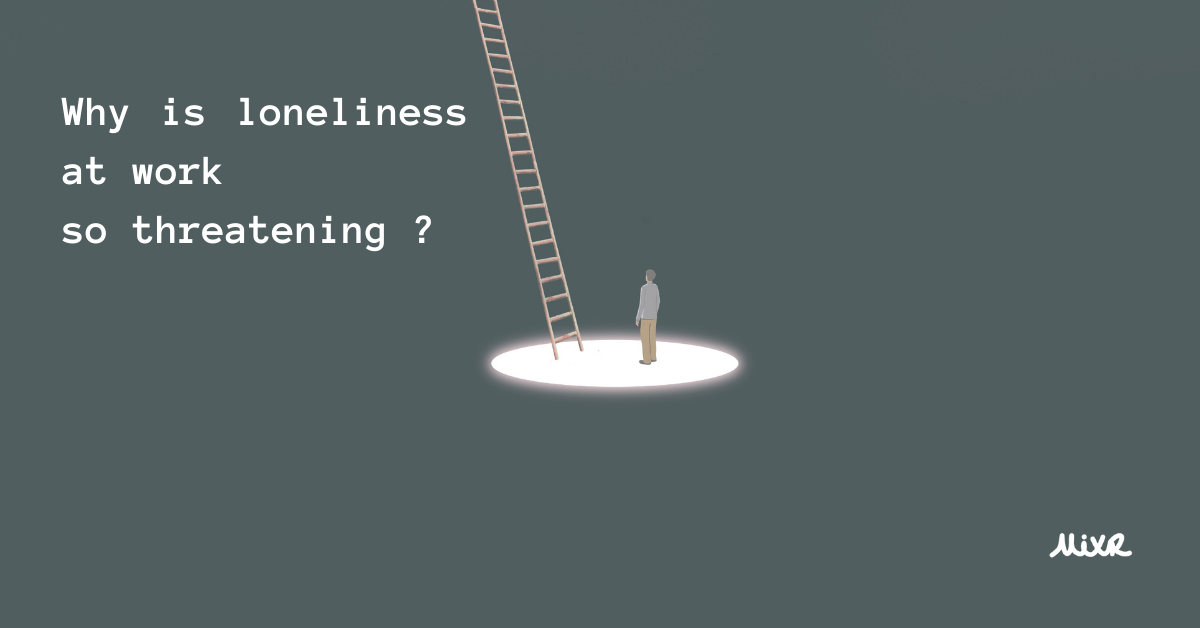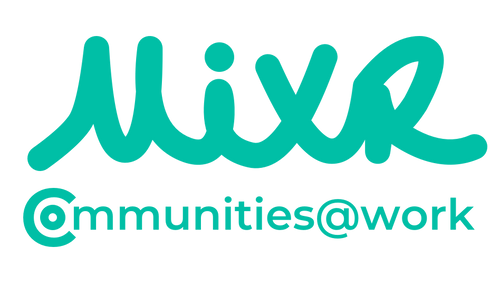A word from our CEO, Cecile Moulard
Here’s a paradox we’ve all been exposed to, notably in the last two years: people have more ways to connect now than ever, yet loneliness continues to rise. The truth is, even before the pandemic, we were experiencing an “epidemic of loneliness” driven by the accelerated rates of change and the spread of technology into our social interactions. According to the U.S. Surgeon General, Vivek Murthy, “efficiency and convenience have edged out the time-consuming messiness of real relationships.
Research shows that loneliness has real consequences on our health & well-being. Not only that… loneliness is associated with hefty healthcare costs. U.S. employers are now spending more than $154 billion annually in stress-related absenteeism, plus more in job turnover, according to studies by AARP and Cigna. Yet, as Dr. Murthy points out, our culture is moving slowly to address the loneliness epidemic. Instead of treating it as a public health crisis, it’s being treated as an “unpleasant feeling.” His solution? “We must address not only the lonely people, but the culture making them lonely.”
Where to begin?
Countless research shows us that people with meaningful connections live longer, happier and healthier lives. So, the change must begin not only in our homes, but also in our workplaces.
Rates of loneliness at work have risen so much during the pandemic that many employers have put the well-being of their people at the top of their agendas. Now, at the highest level, loneliness is being recognized as a threat to productivity, and a catalyst of turnover and burnout. You may be thinking: if only lonely people had more face-to-face interaction, many of these issues could be solved? Unfortunately, it doesn’t work that way. While increased in-person interaction is beneficial for many aspects of work, research shows that it is not enough to create interpersonal bonds among colleagues. We know this because employees were already experiencing high rates of loneliness before the shift to remote work. So, the problem runs deeper than social distancing measures.
Building high-quality social connections
No matter what “back to the office” strategy an organization adopts, there must be a focus on building high-quality social connections at work. High quality connections are those built on empathy, support and interdependence. These types of connections can only exist when your people feel psychologically safe. Think about it: people are unlikely to reach out to others, take risks or share personal experiences if they don’t feel safe. People need spaces where they can be their whole selves, free of judgment from others. That’s when the magic happens. Meaningful relationships simply cannot happen without psychological safety. Traditionally organizations have shied away from creating environments where people can get personal & be vulnerable. But that clearly isn’t working. The workplace needs healing… as I’ve said before: Love at Work.
Solving loneliness, for the long-run
Many organizations have begun thinking of ways to promote increased social interactions. Think: workshops, social events, ice-breaker activities. While those are all great and can help kick-start connections in the workplace, they are not going to solve loneliness in the long-run. What employees need is a sure-fire way to find support and connection, on their own terms. No matter if they’re in the office, remote, or hybrid, employees need the right tools & resources to connect with others beyond their traditional workplace responsibilities. The bad news? There is no one-size-fits all solution. Every employee is different, and has a vastly different employee experience. The good news? Tools like MixRempower each employee to be the change they want to see, and to shape their own experiences at work. Only the individual truly knows what they need to prevent feelings of loneliness. With MixR, anyone can join, create and manage their own communities based on their interests, and truly find a place where they belong.
While your employees may get along and see great results working as a team, they may also be feeling disengaged and disconnected. Employees need more opportunities to share and connect with one another, beyond their teams. Here is food for thought: “A team is only as good as how it is set up and the support that it receives amongst its individuals.” As organizations design their strategies for the future of work, they need to re-think what it means to facilitate relationships at work, empower employees to get involved, and reward & recognize those that do. If not, loneliness will continue to rise, and the effects will continue to be detrimental to your people, and your bottom line.
At MixR we are on a mission to help organizations solve loneliness, disengagement and burnout at work (for good) by addressing the root causes of these issues. Visit www.mixr.net to learn more. Let’s get in touch :)







